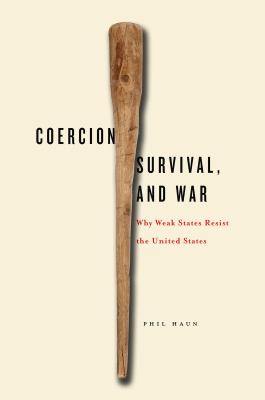
e-Book
|
Coercion, survival, and war : why weak states resist the United States
-- Why weak states resist the United States
Copies
0 Total copies, 0 Copies are in,
0 Copies are out.
Title
Coercion, survival, and war : why weak states resist the United States -- Why weak states resist the United States
Call No
e-Book
Digital Link
Authors
Subjects
Language
English
Published
Stanford, CA : Stanford Security Studies, [2015]
Publication Desc
1 online resource (286 pages) : illustrations, maps
ISBN
9780804795074 (electronic bk.)








